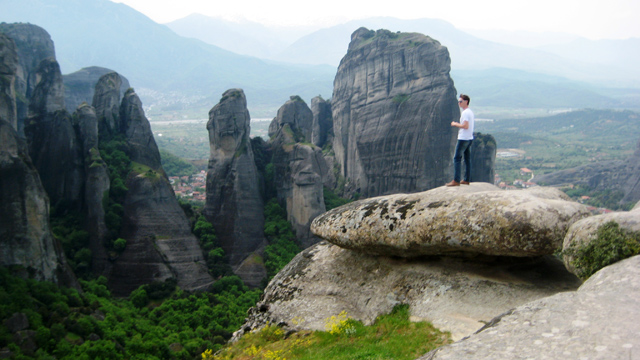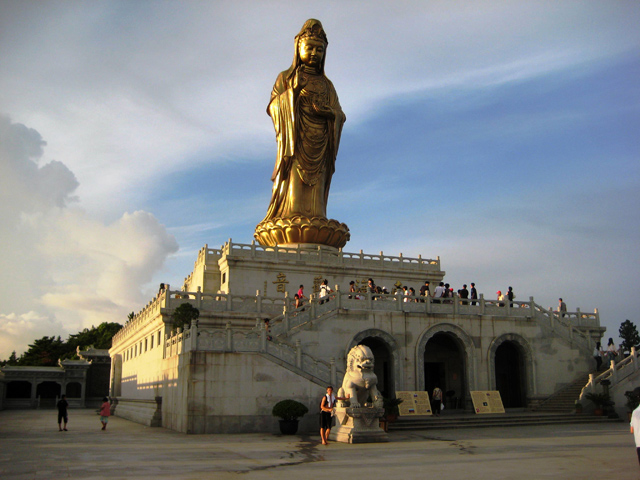

This is a guest post written by Isaac Jones, a good friend of mine and one of the co-founders of Africantiques.
Over to Isaac…
I have been friends with Mark Wiens for over a decade now, and our history reaches to a time when we both lived in Kenya and the adventures were simply a part of our lives.
I was an automatic fan of Migrationology.com at its conception, and when invited to write an article I took to it with much enthusiasm.

Like many of you, I too have a passion for travelling.
By age 21 I had travelled to more than fifty countries and even managed to put myself into debt.
Luckily this debt was not great and I was able to land on my feet immediately following my education.
I have now come into a business which allows me to continue my traveling passion back in Kenya. This business involves the trade of African antiques, or African Tribal Art, primarily sourced from the numerous African tribes that created this art before contact was made with the outside world.
I offer these African artifacts for sale to the world, and despite my efforts here in Africa, most of my clients remain in the West.
Through this business, I have been able to visit places and peoples in the most remote corners of the African wilderness, people and places never mentioned in the travel books, places and peoples that bring more adventure and expose more of the African culture than one could wish for.
Get exclusive updates
Enter your email and I’ll send you the best travel food content.
Yet I write this not to discuss my business or my travel, but to address a growing trend you should be aware of, a problem that deals with the simplest of questions:
Why do we travel?
What is the purpose of taking-off valuable time and spending great sums of money to venture into new lands?
Here’s my answer:
We travel to have an adventure, to escape the mundane, to witness another way of life, to see the extraordinary, and to challenge our way of thought.
And with that answer in mind the problem is that many miss the point.

Too often do those who profess to be avid travelers simply find a new location to drink, join prepackaged tours, and relax in Western accommodation. Too often do their greatest adventures abroad merely consist of the consumption of too much alcohol, experiences that in truth closely mirror their lives at home.
In reality, they were travelling to a place within the bounds of Western Culture.
This place exists in just about every country now, and caters to the masses that often spend big and experience little. In this place nearly every young local you will meet has a Facebook, has watched American television and movies, and wants someday to own a big house and drive a luxury car.
This Western area is not unlike the real West, where not everyone speaks English or lives in affluence, yet they are part of a culture largely formed in the West through decades of unadulterated capitalism. These Western places are filled with familiar corporations and washed-out junkies, loads of travel books, and conveniently placed accommodation for English-speaking travelers.
For those who travel this way, they often enjoy luxury hotels, even though they provide the exact same standards of hotels at home, yet they are impressed simply because it happens to be in a different country. Many of these people save themselves from the challenge of having to learn the basics of another language, settle for non authentic food, and don’t sacrifice their standards of comfort.
They often return home bragging about their adventures to those without a passport and others will be impressed simply because of the trip abroad. Main stream tour books will provide all the depth they ever need to call themselves avid travelers.

But there are also those who are like myself and those who enjoy Migrationology, that are searching for more in our traveling experiences and perhaps more authentic travel adventures.
Avoiding the spread of common Western Culture is getting harder all the time.
The populations of the world are shifting into one mega-culture of shopping and entertainment, and the traditional cultures are being forgotten with the passing of one generation to the next.
The peoples in villages for the first time become poor as for the first time they are compared to those in affluence in the West. Money trickles in slowly by slowly, so that they can get a Western education, so that they make money in the cities, so they can forget the old ways and become like us.
I see this quite often in my hunting for African art. Villages where the new generation laugh and mock me for my interest in their old carvings, villages where the new generation understands nothing of their ancestors devotion to their artistic carvings and the powerful meanings behind them, villages where the new generation only understand the language of money and sell their valuable art as if it were worthless.
I lived in Africa for many years before I had the opportunity to step out of Western Culture.
The deeper into the wilderness you venture, where the new roads and electrical polls cease, on the far reaches of the African frontier, there the old ways are still practiced and believed.
Here is where you will be challenged, if not by how different they see the world than you, then merely by where you will sleep and what you will eat.
This is where the greatest stories are found, and where adventures are so common and grand you may get bored with life when you return home.

So how do we fight this?
The answer is that we don’t. We let the masses talk big about their so called adventures and we simply do not rain on their parade. Besides, the West will soon engulf the cultures of the world that are left, and the longer these areas are kept secret and visited by few, the longer they will remain.
About the Author
Isaac Jones is a world traveler at heart and is an advocate for preserving cultures that are disappearing from the world, especially with a focus on Africa. After graduating from high school in Kenya, he proceeded to spend time studying at Oxford and eventually co-founded Africantiques for the preservation of African artifacts.
Get exclusive updates
Enter your email and I'll send you the best travel food content.



